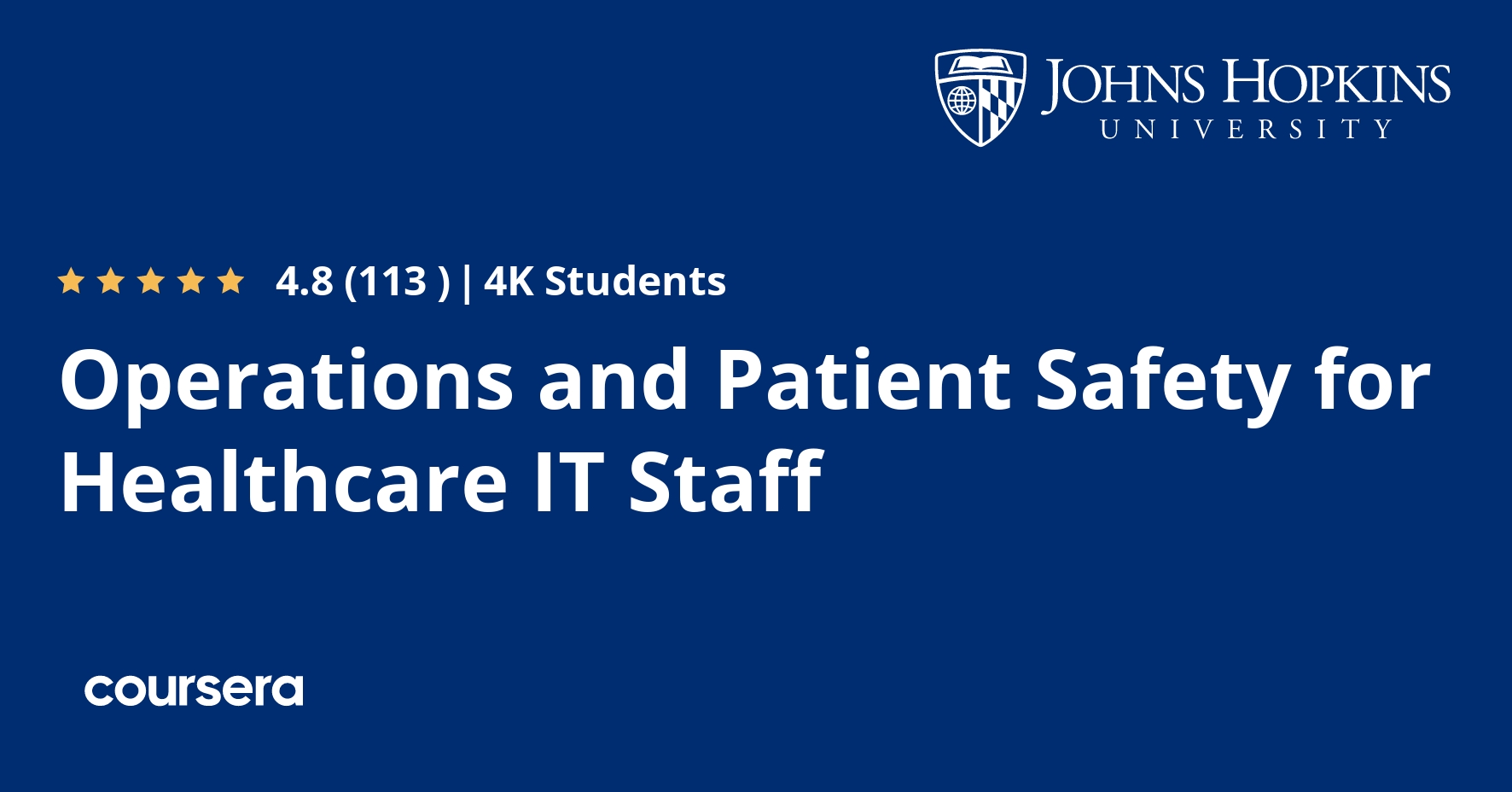Description
Now that you’ve been introduced to the world of Health IT and the important role played by electronic health records (EHRs), we’ll focus on other technologies that play a role in maintaining ongoing operations in healthcare. Telemedicine, patient portals, barcode scanners, printers, and medical devices are just some of the technologies that impact providers and patients. As an IT support specialist, you’ll be asked to troubleshoot issues with a wide variety of tools. You’ll see a scenario with a medical device installation where issues related to IP addresses, networking, and MAC addresses come up.
When there are disruptions in technology, you’ll need to use training, tip sheets, and problem-solving skills to determine how best to handle the situation. Supporting a high reliability organization means being familiar with the existing processes and protocols for handling calls, creating tickets, escalating issues, and resolving matters. We’ll introduce you to the concept of self-service tickets and the guidance given to hospital staff on how to submit a ticket. You’ll learn about the different priority levels for tickets as well as the tiers of IT support. When a call comes in, there are some important resources you’ll need to access in order to troubleshoot the problem. These can range from standard question templates to tip sheets to complex matrices and knowledge base articles (KBAs). Having these tools in your arsenal is essential as a Health IT support specialist. We‘ll also cover the JIRA process, the need for excellent documentation, and ways in which requests for change are communicated.








